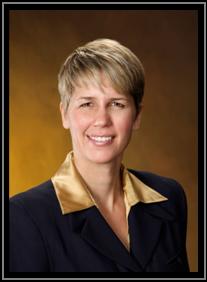Sharing Her Expertise in Financial Exploitation of the Elderly
Miller Elder Law Firm Founder, Shannon Miller, ESQ., was recently interviewed about her expertise in financial exploitation of the elderly by Juan C. Antúnez for his blog “Probate & Trust Litigation Blog.” Mr. Antunez is a partner with Stokes McMillan Antúnez P.A., a boutique trusts and estates law firm located in Miami, Florida.
Shannon M. Miller of The Miller Elder Law Firm, PA, in Gainesville, Florida is a Florida Bar Board Certified Elder Law Attorney and the past president of the Academy of Florida Elder Law Attorneys. She’s also a fellow USMC veteran (Semper Fi!) and former public defender.
In 2014, she was instrumental in the legislative revamp of F.S. 825.103, which criminalizes the financial exploitation of elder Floridians. A lot of work and study went into that legislation, as summarized in its legislative Staff Analysis. You may read the entire blog here. Here are a few highlights.
[1] Can you give us some background of your experience with financial exploitation cases?
My experience with exploitation cases began when I became an attorney in private practice in 1995. Before that time, I was a public defender. During my first exploitation case, I learned that my 92-year-old client had been widowed and that her pastor had offered to assist her with managing her personal bank account. Shortly thereafter the pastor removed all of my client’s savings which totaled about $115,000. This was one of the first experiences that I had with exploitation and one that prompted my interest in pursuing law changes in Florida, as well as pursuing exploitation cases.
At our firm we have probably done 30-40 exploitation cases from the civil/probate side. We did these cases before the new statute was implemented and after. The greatest addition to obtaining judgments and convictions from a criminal prosecution has been the revamping of the definition of exploitation under Fla. Stat. 825.103.
[2] Why is Adult Protective Services dedicated to prosecuting cases against fiduciaries?
Adult Protective Services is charged with protecting seniors who are vulnerable and keep them safe. That is their only mission. They are not charged with any powers to prosecute cases, but they can refer them to law enforcement or to the prosecutor’s office, not only to the State Attorney’s office, but also to the Medicaid Fraud Unit, the Attorney General’s office, whichever is appropriate, and they can make a recommendation, but they have no law enforcement powers. They go in, they assess and if they have to relocate a person or if they need to take steps to make sure the person is safe, then they will go to court and do that, but their job is not to prosecute criminal cases.
[3] In my blog on this topic, I indicated that perhaps we should be advising fiduciaries to “Plead the Fifth” and advise clients to get with a criminal defense attorney in dealing with these matters. Does that not appear to you as over-criminalization of inheritance litigation?
My advice is that we should be advising clients, agents under a durable power of attorney, guardians, trustees, and joint account holders that expenditures that are made by fiduciaries should be for the benefit of the vulnerable adult, not the agent, trustee, guardian or joint account holder.
The Astor case is an excellent example of undue influence. We cannot allow people to direct the incapacitated person to the point where they feel like they have no other choice, but to make a change to their estate plan, or end up on the street. In reviewing the facts of that case, it is clear when we look at the Carpenter factors that the presumption shifted so that the beneficiary (Marshall Astor) had the burden of showing it was NOT undue influence. I agree with you that when we are talking about a future expectancy like an inheritance, it really is not a typical nor predicted scenario under Fla. Stat. 825.103. I can tell you as one of the work group members who drafted the legislation, undue influence was not one of our considerations as it related to inheritance.
The rest of these cases – when we are dealing with trustees who are literally stealing money from beneficiaries, attorneys-in-fact, and even guardians, this statute gives us the opportunity to create real remedies for these clients who otherwise get their lives stolen away from them and they must wait for years for any recompense.
[4] What does your typical financial exploitation case look like?
Typically, we start with an emergency temporary guardianship case and an ex parte motion to freeze assets, although some cases can proceed without a determination of incapacity depending on the exploitation definition, such as the joint account provision or negligent use of funds. Once we get the emergency guardianship established, we subpoena documents, bank statements, and find everything that we can to assist the Assistant State Attorney, and then we wrap it up in a nice big package and send it over to them to review. Then we proceed with the case on the civil side, by sending a Civil Theft Demand letter, then proceed with an action against the predator.
How The Miller Elder Law Firm Can Help
Allow our experience in the field to work on your behalf. Contact The Miller Elder Law Firm today for an initial consultation at (352) 379-1900 or fill out our convenient contact form.

